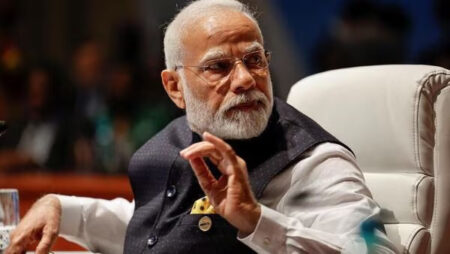The Supreme Court of India is set to reconsider a significant ruling about the enforceability of arbitration clauses within agreements lacking sufficient stamp duty. The apex court’s decision, which initially held that arbitration clauses in inadequately stamped agreements are non-actionable, is now the subject of a curative petition. This development has sparked interest among legal experts and stakeholders as it could potentially impact the landscape of arbitration and contract law in the country.

Supreme Court to Revisit Ruling on Arbitration Clauses in Insufficiently Stamped Agreements
In a pivotal judgment, the Supreme Court previously ruled that courts could not enforce arbitration clauses embedded in agreements with inadequate stamping. The reasoning behind this decision was anchored in the principle that unstamped or insufficiently stamped agreements cannot be admitted as evidence in courts, rendering such arbitration clauses non-operative. This ruling aimed to uphold the importance of proper stamping in legal documents, a fundamental requirement to validate their authenticity.
The Curative Petition
A curative petition, a legal recourse available in limited circumstances, has been filed before the Supreme Court to review its earlier ruling. The petitioner contends that the ruling has led to ambiguity and has inadvertently discouraged parties from resorting to arbitration in cases involving agreements with stamp duty deficiencies. The outcome of the curative petition could potentially influence the judiciary’s stance towards arbitration and its compatibility with agreements that suffer from stamp duty insufficiencies.
Significance for Arbitration and Contract Law
Legal experts closely monitor this curative petition’s developments due to its implications for arbitration and contract law in India. The previous ruling had prompted concerns among businesses and stakeholders who were uncertain about the enforceability of arbitration clauses in agreements with stamp duty discrepancies. If the Supreme Court were to reconsider its position, it could provide much-needed clarity on the treatment of such clauses, bolstering the use of arbitration as a dispute resolution mechanism.
Balancing Stamp Duty and Enforceability
One of the key challenges this case presents is striking a balance between upholding the integrity of stamp duty requirements and ensuring the enforceability of arbitration clauses. While proper stamping of agreements is vital for legal validity, rendering arbitration clauses void merely due to stamp duty issues might be considered overly stringent. Legal circles are debating whether a more nuanced approach could be adopted, perhaps allowing parties to rectify stamp duty deficiencies while preserving the enforceability of arbitration clauses.
Impact on Commercial Contracts
The outcome of this curative petition holds particular significance for commercial contracts, where arbitration clauses are commonly included. Businesses often include arbitration clauses to expedite dispute resolution and maintain confidentiality. However, the current ambiguity stemming from the previous ruling has led to business hesitancy, especially when dealing with agreements that might have irregular stamp duty. A favourable reconsideration by the Supreme Court could reinvigorate the use of arbitration clauses in commercial contracts, fostering a more business-friendly environment.
Conclusion
The forthcoming deliberations by the Supreme Court on the curative petition challenging its prior ruling on arbitration clauses in insufficiently stamped agreements have the potential to reshape the legal landscape concerning arbitration and contract enforcement in India. The balance between upholding stamp duty requirements and ensuring enforceability is a critical aspect that the apex court will need to consider. The outcome of this case will undoubtedly impact the efficacy of arbitration as a dispute resolution mechanism and influence how businesses approach the inclusion of arbitration clauses in their contracts. As legal minds await the court’s decision, the hope is that the judgment will strike a judicious balance that facilitates both the sanctity of stamp duty regulations and the effectiveness of arbitration clauses.












